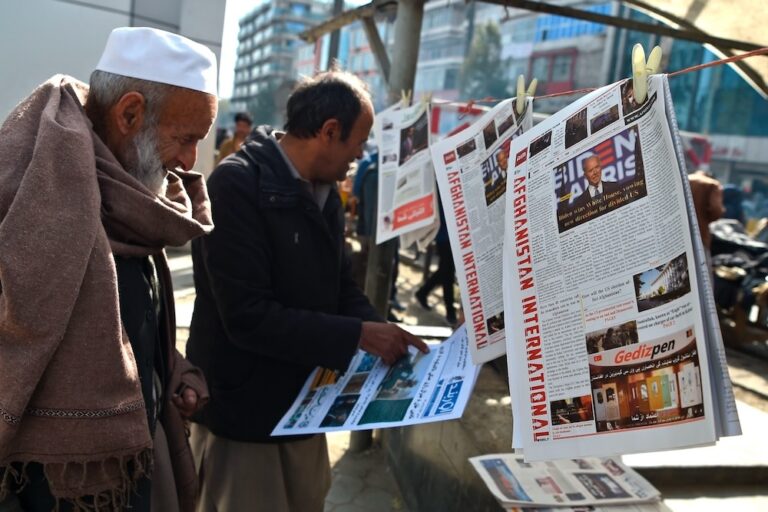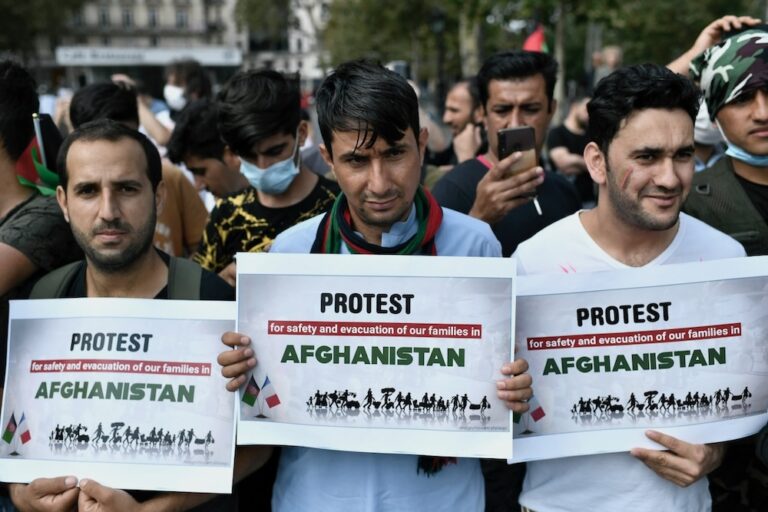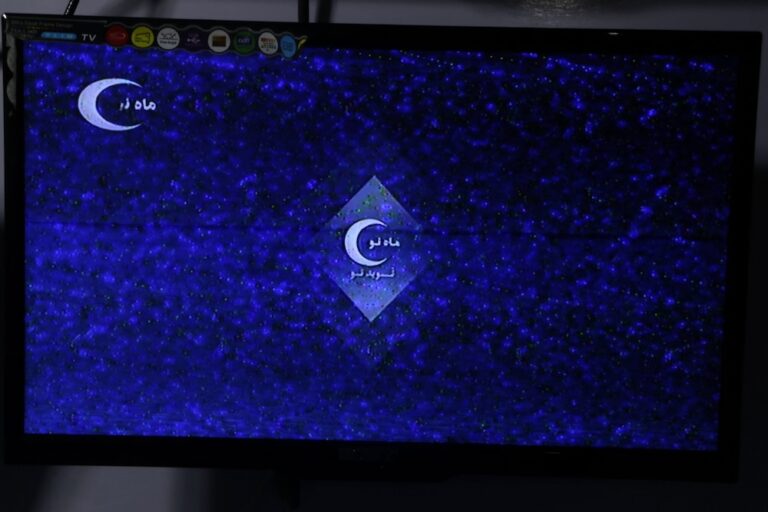Hervé Ghesquière and Stéphane Taponier were kidnapped in the Kapisa region of northeastern Afghanistan, along with their three Afghan assistants, on 29 December 2009.
(RSF/IFEX) – Reporters Without Borders repeats its call for the liberation of French journalists Hervé Ghesquière and Stéphane Taponier and their three Afghan assistants, who are about to start their 500th day in captivity in Afghanistan. They are the only journalists anywhere in the world being held hostage.
Ghesquière and Taponier were working for the French TV station France 3 when they were kidnapped in the Kapisa region of northeastern Afghanistan on 29 December 2009.
“There must be further initiatives to get them out,” the press freedom organization said, “otherwise it could be too late. Those who have the power to get Hervé and Stéphane freed are certainly in Pakistan, near Quetta. France must plead with Pakistan to intervene and put pressure on the leaders of the Taliban.
“The death of Osama bin Laden has weakened those who thought they were safe in Pakistan. We must take advantage of that. The way out of this hostage-taking is to be sought more in Islamabad than in Kabul,” Reporters Without Borders said.
For the first time a member of the family of one of those accompanying the journalists has also spoken out.
“If the French government and the other countries in the coalition, beginning with the United States and NATO, were better organized, the hostages could be freed in a single day,” the family member said.
“But some countries are not cooperating and there is no coordination between them. For his part, Hamid Karzai is not making the necessary efforts.”
According to Abdolhamid Mobarez, president of the National Union of Afghan Journalists (NUAJ), “nothing justifies the holding hostage of these journalists for such a long time.”
“From the start we have been worried about their fate, but we received instructions, particularly from the French authorities who urged us not to talk about their situation, perhaps so as not to get in the way of the negotiations.”
He said he thought that Afghan officials were doing all they could but the problem was Pakistan, where the Taliban leadership was.
“Pressure must be put on the Islamabad authorities and all possible support used, like that of institutions, civil society organizations and journalists,” he said.
“The death of Osama bin Laden is going to weaken Al-Qaeda. He was their historic head and their main economic resource. I humbly implore the Taliban to free the hostages, they are journalists and should not remain prisoners for having simply done their job.”
Sediqolah Tohidi, of the Afghan media protection organization NAI, criticized the lack of information about the situation of the hostages, underlining the fact that “nobody wants to raise this issue.”
“Our office has asked for information from the Afghan authorities and officials at the French embassy in Afghanistan,” he said. “The Afghans have not replied and the embassy asked us to keep quiet for the benefit of the negotiations. It is obvious that here, in the media, they have been forgotten.
“I think that France, unlike the other coalition countries, has reacted very badly, especially in its relationship with the media, taking care not to reveal any information.”
He said that it was the duty of President Hamid Karzai to act, officially or unofficially to call for their liberation.
“At the moment a group of Taliban, with the same ideological line as the hostage-takers, are living under the protection of the government in the middle of Kabul!” he said.
“These people are using the means of communication and the media to serve their goal. Who are they? What are they doing? Journalists are neutral. To inform is their duty and their imprisonment for so long a time is a crime against humanity and against Islam.”
According to Farideh Nikzad, of the Afghan Independent Journalists Association (AIAJ) and editor of the Wakht News agency, detaining the journalists for 500 days is unjust on both moral and religious grounds.
“Our association is appalled by this tragedy. We have done everything we have been able to do to get them freed, calling incessantly for their release,” she said.
“But we come up against a wall of silence! Neither the Afghan nor the French authorities want to give us an answer. In December we organized a seminar in the city of Kapisa in the presence of journalists from the region. In a resolution we called for the freeing of the hostages. We reminded the Taliban that at the worst moment of the war journalists were always present and that sometimes they even passed on the messages of the insurgents. So they must be released.
“Some people think that the death of Osama bin Laden will complicate the negotiations. But I wonder in what way journalists who have nothing to with this death, who have been held for more than a year, could be in greater danger? We Afghan journalists are thinking of them and are with them.”
( . . . )


